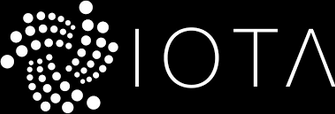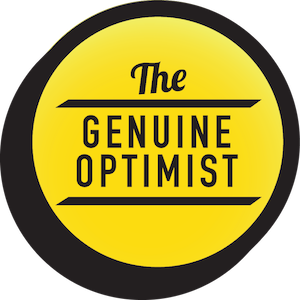

MISSION
Scalable, Decentralized and Modular for the Internet of Things.
TECHNOLOGY
If you know anything about me, I am a big proponent of B2B models. IOTA is going after a B2B market. I will explain the difference below.
As the Internet-of-Things keep expanding, the need for interoperability and sharing of resources become a necessity. IOTA enables companies to explore new B2B models by making every technological resource a potential service to be traded on an open market in real time, and with no fees. This may sound Greek to many, so let me explain. Right now, data is looked upon as stuff to possess and horde, and this is often done on larger platforms managed at great distances and housed on a single server. For example, I am a local guy and I see tons of ideas in local markets. Imagine 17 high school basketball teams come to town for a two-day tournament, ready to spend many thousands of dollars in lodging and food. Bigger hotels are often notified first, but because they are the big fish, the smaller businesses and local restaurants are not notified? The new tangle technology will decentralize the current control grid of data and expand more local power with more shared connections that are non-competitive. Sharing through cross-pollination will soon be a necessity for small businesses, all because they are learning to link interoperability to share resources, and with a crypto currency behind the scenes, they can get paid to share. And who benefits? The one who shares at the most local level, and not the one hording the data at a distance to then resale. In the future, crypto technology will decentralize naturally what governments used to do with anti trust lawsuits.
IOTA acts as a supplementation to the current blockchain ecosystem. It does this by serving as oracle for smart contract platforms like Ethereum and Rootstock. The tangle or Directed Acyclic Graph (DAG) chain essentially means a collection of nodes or vertices, while allowing connectivity between nodes but with no circular edgings. In other words, you cannot start at one vertex and eventually loop back to that same vertex via a sequence of edges (connections). A blockchain can be loosely defined as a ledger of transactions shared by participating nodes in the system operating under some kind of consensus protocol. IOTA communicates in their white paper the following: we “propose a modification of the Bit-coin protocol by making the main ledger a tree instead of the blockchain. If this image grabs you, then you will understand that such a modification permits to reduce the confirmation times and improve the overall security of the network. In other words, as stated in their white paper after a lengthy mathematical explanation, the tangle provides a much better protection against an adversary with a quantum computer compared to the (Bitcoin) blockchain. Look at Iota like you would the tree in Avatar. If that helps, then you understand its potential.
KEY BUSINESS MODEL
As the projection of billions of connected devices within the next decade are tossed around, it seems most practical Iota, as a micro-transaction cryptotoken, must operate in conjunction with the myriad blockchains that will connect the myriad devices belonging to a diverse corporate world of things. This is like Blue Tooth Ibeacon technology on steroids. In other words, this opens up a new world of application development that is native but not dependent on the traditional served-run Internet. The main innovation behind IOTA, its secrete sauce, is the Tangle, a revolutionary new blockless distributed ledger which is scalable, lightweight and for the first time ever makes it possible to transfer value without any fees. Contrary to today’s Blockchains, consensus is no-longer decoupled but instead an intrinsic part of the system, leading to decentralized and self-regulating peer-to-peer network. Iota seeks to be a huge disrupter in the crypto world by attacking the central control of transaction data.
APPLICATIONS
I have found no applications as of writing this, but I personally have a business model ready to build on the technology. Until then, consider the this. While blockchain technology will help automate contracts for insurance, accounting, financial and other industries that work on a linear path, there are critics that say such a robust framework is not ideal for machine-to-machine payments on a smaller scale. Enter Iota, a micro-transaction cryptotoken said to be designed for the Internet-of-Things (IoT), meaning micro transactions and connections between many devices. If you are an entrepreneur, let that sink in for a moment and maybe your imagination will go wild. Think of it this way. Real business is based on relational connections and not a linear transaction. In other words, who do you do business with? The people you know best. Iota is seeking to increase relational connections and not linear one’s. This makes for a more powerful platform to build on.
SECRETE SAUCE
The main innovation behind IOTA is the Tangle, a revolutionary new blockless distributed ledger which is scalable, lightweight and for the first time ever makes it possible to transfer value without any fees. Contrary to today’s Blockchains, consensus is no-longer decoupled but instead an intrinsic part of the system, leading to decentralized and self-regulating peer-to-peer network. For the first time ever true micro and even nano-transactions are enabled due to the unique IOTA Tangle architecture, providing developers with a brand new set of tools for their applications in both IoT and Web. This nurtures brand-new business opportunities for companies that prohibitive fees have kept in the realm of the impossible until now.
SOURCES
https://iota.org/
Link to their Whitepaper.
MARKET CAP
On the date of making this post, IOTA was trading at $.40. It has climbed way above that, and fast. See this link to see its current market cap.
https://coinmarketcap.com/currencies/iota/
FYI
B2B models have traditionally returned 80% more than a consumer model (B2C). Consumer models are not much better than a 14% return. Sadly, so many new technologies go after users only. Take Steemit. It is strictly a consumer or user model only. It rose fast in the crypto world but is now fading. It has a great potential still, but it cannot compete with solving real business needs, especially small business. As I continue to post on new technologies in the crypto world, I am looking for B2B models first. This might give insight into those who follow. There is a reason why IOTO is ranked #5 as of writing this. I hope the above explains it. The reason IOTA may fall in valuation is because it has a larger than normal supply of coins. This cuts into its rarity, or value, and explains why it will have less short term growth. In short, IOTA is a long term hold.